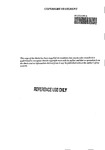The navy as the ultimate guarantor of freedom in 1940?
| dc.contributor.author | Cumming , Anthony John | |
| dc.contributor.other | Faculty of Arts, Humanities and Business | en_US |
| dc.date.accessioned | 2011-10-04T11:02:31Z | |
| dc.date.available | 2011-10-04T11:02:31Z | |
| dc.date.issued | 2006 | |
| dc.identifier | Not available | en_US |
| dc.identifier.uri | http://hdl.handle.net/10026.1/863 | |
| dc.description | Merged with duplicate record 10026.1/2211 on 07.20.2017 by CS (TIS) | |
| dc.description.abstract |
The widely held public view that Britain was saved from invasion during 1940 because the RAF denied the Luftwaffe control of the air is challenged here. Although the heroism of `the few' is not in question, the ability of Fighter Command to act as a serious physical barrier to German plans is refuted with the Luftwaffe holding the initiative between 24 August and 6 September and its ability to bomb Britain by night for months virtually unopposed. Archival and other evidence show that even without adequate fighter cover, the Royal Navy retained considerable potential to resist German air attacks on the Home Fleet and local flotillas. The traditional importance of `seapower' is strongly reasserted with evidence from American newspapers and German admirals revealing preoccupations with the Royal Navy's control of the sea in the summer of 1940. Britain's negotiating position with Germany was therefore stronger than generally assumed. The relative position of Sir Hugh Dowding and Sir Charles Forbes in the British national pantheon is revised with the relatively unknown Admiral Forbes emerging as a forgotten hero. An undue focus on the air campaigns of 1940 only emerged as an Anglo-American media construct after American fears over Axis naval domination began to ease. As Churchill wished to fight-on, he glamorised the exploits of `the few' and allowed the suffering of bombed civilians to be paraded in front of a cautious American public. Churchill's desperation ensured some British technological achievements overwhelmingly connected with the air campaigns were exaggerated in order to `buy' sympathy and vital logistical support. This new narrative of victory distributes the credit more fairly among participants and calls for Battle of Britain monuments to recognise the sailors' contributions, especially those of the Merchant Navy whose human losses far exceeded those of `the few' at this crucial period. | en_US |
| dc.language.iso | en | en_US |
| dc.publisher | University of Plymouth | en_US |
| dc.title | The navy as the ultimate guarantor of freedom in 1940? | en_US |
| dc.type | Thesis | |
| dc.identifier.doi | http://dx.doi.org/10.24382/4254 |
Files in this item
This item appears in the following Collection(s)
-
01 Research Theses Main Collection
Research Theses Main


